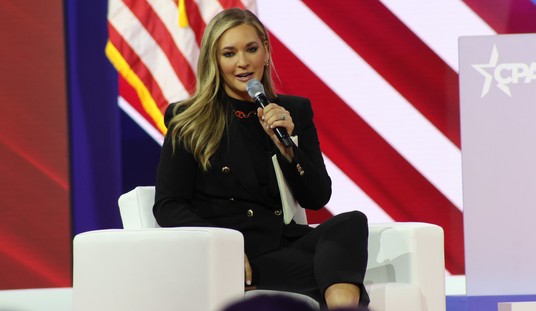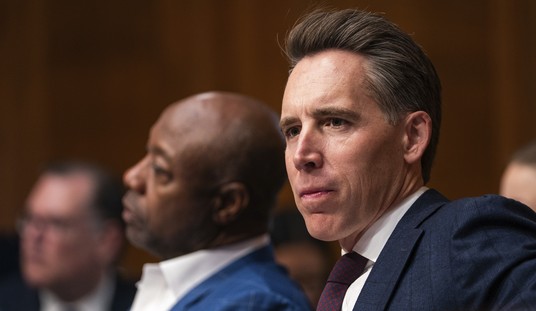Taylor Harris, a black University of Virginia graduate now studying writing at Johns Hopkins, had an excellent article (“Racial pawns in the battle for same-sex marriage”) in the Washington Post recently.
“All too often,” she begins, white liberal classmates at the University of Virginia would ask, “Shouldn’t blacks, more than any other group, support gay rights?” She continues:
I never understood my classmates’ need to align the historical struggles of blacks with those of homosexuals and then push their quadratic equation of oppression on me. Was not one point of Ralph Ellison’s Invisible Man, a classic text for college seminars, that blacks deserve an existence free from an assigned role? That they should not be pawns in any social movement? And even if they hadn’t read the book, wasn’t it clear that stereotypical assumptions based on race are regressive?
On that last point, it’s certainly not clear to everyone. What would there be to “diversity,” after all, without the assumption that blacks are one and all “different” enough to provide it to others? For the purposes of “diversity,” in short, blacks are fungible: because they are all “different,” they are all the same. But let’s leave “diversity” aside for now and return to the issue of blacks and gays.
“Hearing that from my white peers was one thing,” Ms. Harris continued,
[b]ut last month, one of our greatest civil rights leaders also sang the same cacophonous tune in an attempt to peg African Americans’ morals and opinions to our socio-historical identities.
“Black people, of all people, should not oppose equality,” Julian Bond, the chairman of the NAACP, declared at the National Equality March in Washington.
Bond’s comment, however, begs and hence raises the question of the content and meaning of the “equality” that blacks, “of all people, should not oppose.”
During most of the history of the civil rights movement — that is, before the ascent of leaders like Bond — that meaning would have been clear: people who demand to be treated without regard to their race should not oppose the demand of others to be treated without regard to their sex or sexual orientation. That implicit equation of race with sexual orientation may not have been persuasive — especially, as Ms. Harris cogently points out, to black Christians — but at least it would have been consistent, clear, and coherent.
Now, however, it is none of those, because civil rights leaders like Bond no longer believe that blacks should be treated without regard to their race. To the contrary, they believe that blacks should receive preferential treatment because of their race and that those who believe in colorblind equal treatment are either conscious or unconscious racists.
Consider, for example, fair housing, an issue less volatile and religiously charged than gay marriage. Declaring that “discriminatory policies and practices based upon race, color, creed, or national origin” are “unfair, unjust, and inconsistent with the public policy of the United States as manifested in its Constitution and laws,” President Kennedy’s Executive Order 11063 (November 20, 1962) ordered federal agencies “to take all action necessary and appropriate to prevent discrimination because of race, color, creed, or national origin.” That provision was revised in 1980 “to apply to discrimination because of race, color, religion (creed), sex, or national origin.”
Now fast-forward to the present, and the demand of a fair housing group to revise the above language “to apply to discrimination because of “race, color, religion (creed), sex, disability, familial status, national origin, sexual orientation, or gender identity.”
The language of President Kennedy’s executive order on fair housing is of a piece with his Executive Order 10925 and the virtually identical language in President Johnson’s Executive Order 11246, both of which barred government agencies and contractors from discriminating against “any employee or applicant … because of race, color, religion, sex, or national origin” and required them to take “affirmative action” to ensure that all applicants and employees were treated “without regard to race, creed, color, or national origin.”
Since those orders were signed we’ve seen this language turned inside out and upside down. Where “affirmative action” originally meant ensuring that all applicants and employees were treated “without regard to race, creed, color, or national origin,” now it is seen as demanding precisely what it was originally designed to prevent — treating some better and others worse because of their race, ethnicity, etc. Do the proponents of adding sexual orientation to the protected categories regarding housing discrimination prefer the older or the newer version of affirmative action? Does it matter what they prefer? That is, even if it is not their current intention to promote preferential treatment based on sexual preference, is there any reason to believe that protecting against housing discrimination for sexual preference would not follow the same trajectory as the prohibition against racial discrimination?
Turning from housing to employment discrimination, consider ENDA, the Employment Non-Discrimination Act, which has been repeatedly introduced in Congress since 1994. Now, with a Democratic majority, the current version (S. 1584/H.R. 3017) stands a good chance of passage. Here is the operative text from the the House version, H.R. 3017:
SEC. 4. EMPLOYMENT DISCRIMINATION PROHIBITED.
(a) Employer Practices — It shall be an unlawful employment practice for an employer
(1) to fail or refuse to hire or to discharge any individual, or otherwise discriminate against any individual with respect to the compensation, terms, conditions, or privileges of employment of the individual, because of such individual’s actual or perceived sexual orientation or gender identity; or
(2) to limit, segregate, or classify the employees or applicants for employment of the employer in any way that would deprive or tend to deprive any individual of employment or otherwise adversely affect the status of the individual as an employee, because of such individual’s actual or perceived sexual orientation or gender identity.
This definition of unlawful employment practices seems clearly to require that applicants and employees be treated without regard to their actual or perceived sexual orientation. But just as the proposed fair housing executive order discussed above shares the language of earlier executive orders on affirmative action, so ENDA is reminiscent of the language in earlier civil rights laws. For example, Title VI of the Civil Rights Act of 1964 provides:
No person in the United States shall, on the ground of race, color, or national origin, be excluded from participation in, be denied the benefits of, or be subjected to discrimination under any program or activity receiving Federal financial assistance.
But, as we all know, this clear language has been “construed” by the courts to permit precisely what it purported to prohibit — treating some people better, and others worse, because of their race or ethnicity. Thus it would be irresponsible not to wonder whether ENDA will in fact end discrimination based on sexual orientation or, given the apparently unrestrained ability of courts to “construe,” actually wind up authorizing it in the manner of Title VI.
ENDA proponents tried to eliminate this concern:
[Sec. 4] (f) No Preferential Treatment or Quotas — Nothing in this Act shall be construed or interpreted to require or permit
(1) any covered entity to grant preferential treatment to any individual or to any group because of the actual or perceived sexual orientation or gender identity of such individual or group on account of an imbalance which may exist with respect to the total number or percentage of persons of any actual or perceived sexual orientation or gender identity employed by any employer, referred or classified for employment by any employment agency or labor organization, admitted to membership or classified by any labor organization, or admitted to, or employed in, any apprenticeship or other training program, in comparison with the total number or percentage of persons of such actual or perceived sexual orientation or gender identity in any community, State, section, or other area, or in the available work force in any community, State, section, or other area.
But does this attempt to bar preferential treatment succeed? Does it really bar all preferential treatment by employers on the basis of sexual orientation, or only preferential treatment that is employed to correct “an imbalance”? What about preferential treatment undertaken for other reasons, such as to promote “diversity”? But, you ask, wouldn’t that sort of discrimination be covered by the provisions, quoted above, defining unlawful employment practices? Perhaps, but if it did so only to the same extent Title VI prohibited such practices that would not be very much. And even if this provision really did succeed in prohibiting preferential treatment, wouldn’t that mean that sexual orientation lacks the “protection” awarded to race and ethnicity (assuming, of course, that allowing preferential treatment can be viewed as protection)? Do ENDA supporters believe in such a double standard?
The question of the legal meaning of sexual equality became much less abstract and theoretical a few days ago when, on December 10, the Senate health committee sent to the floor President Obama’s nomination of Chai Feldblum to the EEOC. Feldblum has asserted that she wants “to revolutionize societal norms” regarding sex and gender. Although, as Politico points out, she disavowed for the committee some of her more radical positions, such as calling for the legal recognition of “committed, loving households in which there is more than one conjugal partner” and “queer couples who decide to jointly create and raise a child with another queer person or couple, in two households,” she continues to believe that “sexual liberty” should trump religious liberty. As she was quoted in the Weekly Standard: “I’m having a hard time coming up with any case in which religious liberty should win. … There can be a conflict between religious liberty and sexual liberty, but in almost all cases the sexual liberty should win because that’s the only way that the dignity of gay people can be affirmed in any realistic manner.” And, as she wrote in a 2006 law review article, “once a religious person or institution enters the stream of commerce … I believe the enterprise must adhere to a norm of non-discrimination on the basis of sexual orientation and gender identity.”
The Senate must determine what sort of “non-discrimination” she would enforce at the EECO. And when Julian Bond says blacks, “of all people, should not oppose equality,” I think it is incumbent on him to explain what he means by equality. Do Feldblum and Bond mean non-discriminatory, colorblind equal treatment, as provided originally in civil rights laws and in the two presidential executive orders on affirmative action, or do they mean affirmative action as it is now understood, which requires preferential treatment? If they believe that equality requires preferential treatment of blacks but only (!) “without regard,” non-discriminatory equal treatment for those in the LGBT community, how do they justify the double standard?
When Fair Housing For All and other civil rights groups demand an executive order to prohibit discrimination based on “disability, familial status, national origin, sexual orientation, or gender identity,” do they mean for the government to act “without regard” to those categories, in the manner of the original executive orders on affirmative action and fair housing, or with regard to them in the manner of the liberal interpretation of current civil rights law? When they propose legislation banning discrimination against individuals because of “actual or perceived sexual orientation,” do they mean “without regard” to sexual orientation? And even if they do now, will they in the future? Whatever their intent, now or later, what will prevent the courts from “construing” this right to mean preferential treatment based on sexual orientation, etc.?
Do liberals today, in short, believe that one size of equality fits all, an “equality” that requires preferential treatment based on the protected categories, or do they believe that different groups deserve different kinds of equality, reminiscent of the different levels of “scrutiny” with which the Supreme Court looks at different kinds of discrimination?
I have long thought that the reversal of liberals on the meaning of equality has fueled the opposition to gay rights proposals. If voters had not witnessed liberals abandon — indeed, reverse — their dedication to colorblind, “without regard” racial equality, I suspect they would be much more willing to prohibit discrimination based on sexual preference.









Join the conversation as a VIP Member